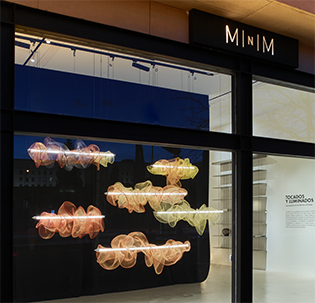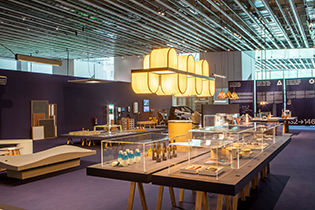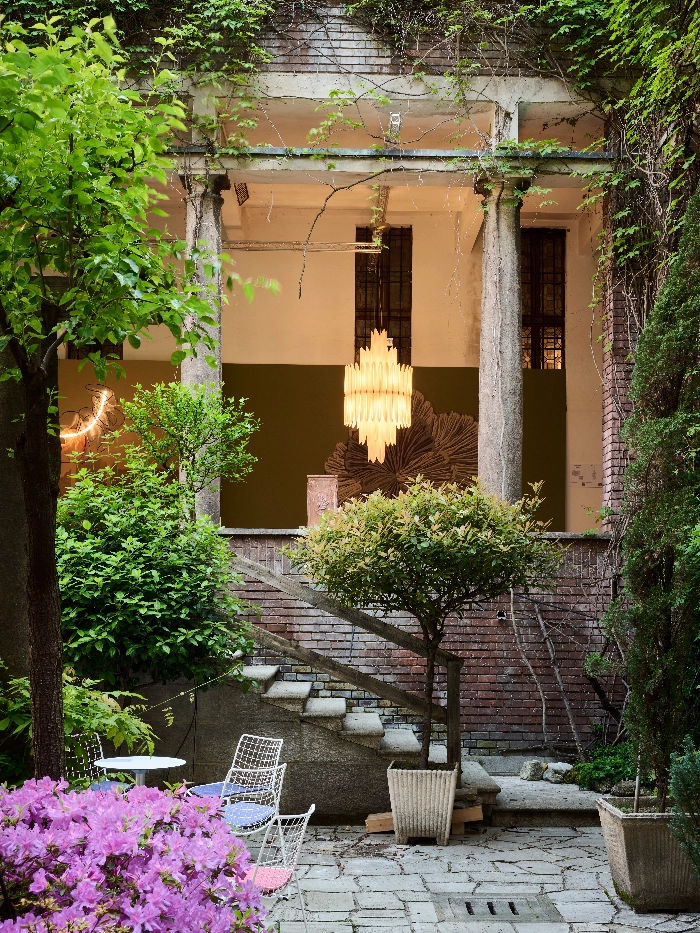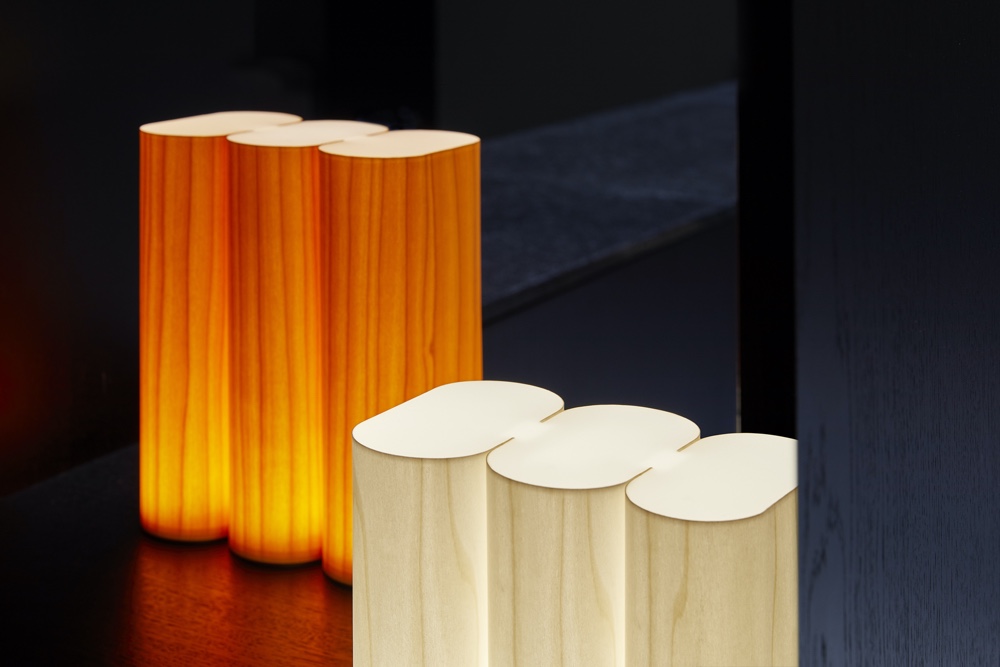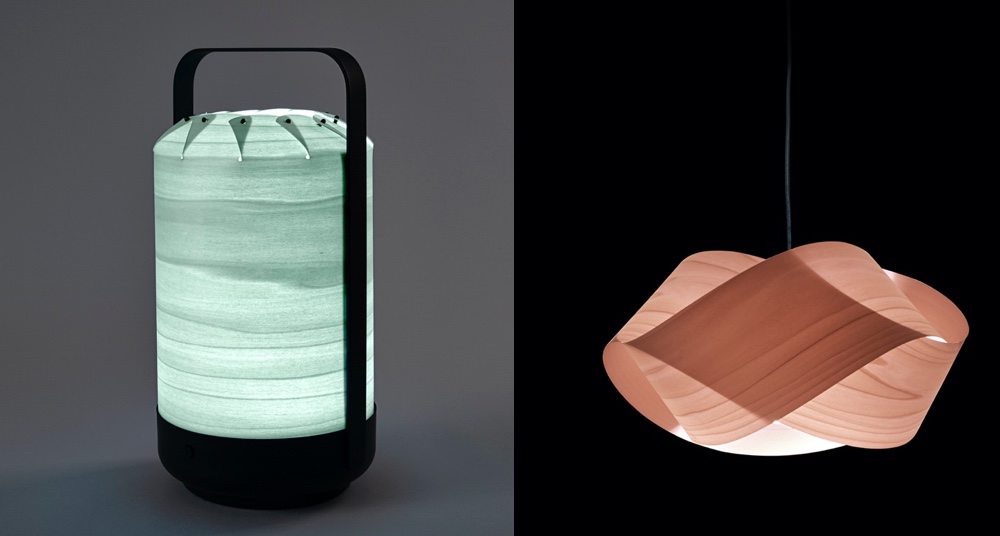The second volume to LZF´s Telling Tales campaign 2016, part of a collection of illuminated stories that talk of love solitude and passion. Created by Mariví Calvo and based on three ideas that would make this catalogue different from previous ones the campaign is set at night, providing the perfect opportunity to showcase our lamps when lit. The focus was to also shift away from spaces the housed the lamps to the human beings that inhabit them, and to move the catalogue away from traditional formats and be more a work of artistic creation.
The initial references were to the works of the painter Edward Hopper and the film Rear Window by Hitchcock. Marivi wanted to recreate the colours of film and photography from that period, and the idea that each photograph would evoke a story line coming from the past and moving forward into the future.
Lana & John es el segundo volumen de Telling tales, la exitosa campaña promocional de LZF para 2016. Una colección de historias iluminadas que hablan de amor, soledad y pasión.
Mariví Calvo inició el diseño de campaña a partir de tres ideas que diferenciaran este catálogo de novedades de los anteriores: que las imágenes fueran nocturnas, lo que permitiría presentar las lámparas encendidas; que el protagonismo pasara de los espacios a los seres humanos que los habitan; y que el catálogo se alejara de formatos tradicionales y fuera una obra de creación artística.
Las primeras referencias eran la pintura de Hopper, el color del cine de la época, una cierta forma de vida dentro de interiores evocadores. Buscaban recrear fotográficamente historias ambientadas en los años 50 del siglo XX.
Lana hardly ever leaves her apartment. She likes to get up early and open the window while the silence is still outside. She lives on the other side of the avenue, on the seventh floor, just like me. Every day she sings softly. Her songs are sentimental and I have come to know them by heart. I think she is in love. Women always sing when they are in love, and some of them even forget to turn off their bedside light.
Lana apenas sale de su apartamento, le gusta madrugar y abrir la ventana cuando el silencio todavía está ahí; vive al otro lado de la Avenida, en un séptimo, como yo. Todos los días canta en voz baja; son canciones sentimentales, me las sé de memoria. Creo que está enamorada, las mujeres enamoradas cantan y algunas se olvidan de apagar por las mañanas la lámpara de noche.

Around noon, she goes into a different room to take her cello lesson. I can’t see her teacher but I can hear him: he has a voice that sounds like a soft summer. Lana’s teacher is Russian, as so many cello teachers are.
Al mediodía, se instala en otra habitación y recibe lecciones de violonchelo. No alcanzo a ver a su profesor, solo lo escucho, tiene voz de verano; las notas repetidas del chelo se mezclan con el ruido de los coches que atraviesan la Avenida a esa hora.
The serendipitous notes from her cello blend in with the sound of the cars driving down the avenue at that time of the day. I use moments like these to organize my brother’s book keeping (he has an ice making business with home delivery).
Yo aprovecho para ordenar la contabilidad del negocio de mi hermano: una fábrica de hielo con servicio a domicilio. El profesor de Lana es ruso, como todos los profesores de violonchelo.
Today is too hot and Lana draws the curtains. She’s gone. I mean, I can’t see her anymore, but I can still imagine her, slowly tracing each decision she makes. She says goodbye to her teacher with a kiss on the cheek, she turns the fan on…
Hace demasiado calor y Lana corre las cortinas. Ya no está, quiero decir que ya no la veo. Entonces, la imagino despacio, dibujando cada decisión: despide a su profesor con un beso en la mejilla, enciende el ventilador…

Someone calls at the door. She takes her time to respond. It’s my brother who has come to deliver an order of ice. Together, they walk accross the dining room; a few drops of water fall to the rug. I call her Lana because that’s what I’d like to be called when I get to her age.
Alguien timbra a la puerta, ella tarda en abrir; es mi hermano, viene a entregarle el pedido. Atraviesan juntos el comedor, caen gotitas de agua sobre una alfombra. La llamo Lana porque es el nombre que me gustaría tener cuando llegue a su edad.
As the sun sets, Lana opens the curtains again, hoping that the breeze will blow in from the harbour. John has just arrived home. He came in without knocking and I imagine he must be her husband, because he askes her, as he does every day, for a glass of scotch with lots of ice. There will be no fire in the hearth until winter. John doesn’t realise that Lana is in love. Lana loves slicing lemons and listening to that sour sound which is so different from the sound of her cello.
Al atardecer, Lana retira las cortinas con la esperanza de que entre la brisa del puerto. Acaba de llegar a casa John; ha entrado sin llamar, tiene que ser su esposo porque le pide que le sirva un güisqui con mucho hielo, como todos los días. La chimenea seguirá apagada hasta que regrese al invierno. John no sabe que Lana está enamorada. A Lana le gusta partir los limones y escuchar ese sonido ácido, tan distinto al del chelo.





